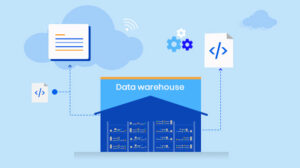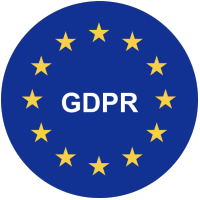Data like customers’ preferences, buying patterns, and habits are some of the most prominent assets of any business. Nowadays Brands formulate database marketing strategies to get better returns from ad campaigns. Let’s take a hypothetical situation to understand.
Suppose there is a town where 50 people reside. And there is this only retail store in town that caters to all the needs of those 50 residents. Therefore, it has a monopoly over its customers. Additionally, it collects a large number of varied customer purchase data. Now, a new company wishes to establish a departmental store in the same town. So, they will need the data for research and analytics for answering business queries. The company uses customer preference graphs, perceptual maps to find the right kind of product, SWOT analysis, and a growth-share matrix. Hence, the new company then, discovers that its competitor does not deal with low-cost items.
Furthermore, this leads them to find inexpensive alternatives to what their competitors are known for selling. Now, this new firm gains popularity for its discounted prices for similar items. So, this sudden shift in customers’ preferences will compel the mega-store to use its under-utilized data. They will use data analytics to gain more insight. Therefore, data is the backbone of any enterprise. In conclusion, it helps a business to enhance its marketing strategies and operations.
What is Database Marketing
Database marketing is a method of direct marketing using databases of consumers to generate personalized interactions for advertising products and services. This type of communication can be any addressable medium, as in direct marketing. Database marketing uses statistical techniques to build customer behavior models, which helps pick selective consumers for communications. Database marketers are one of the biggest users of data warehouses. Having a more significant amount of data about consumers expands the possibility of building a more realistic marketing model in the future.
Why do Businesses need Database Marketing
Data-driven marketing helps businesses to have an advantage in a competitive market and increase profitability. Such companies show more significant profits in a shorter span. And with proper utilization of customer purchase data, database marketing helps companies to identify loyal customers. Companies can separate their customers into relevant segments. During the decision-making process, companies can analyze insights in real-time using database marketing. It helps to track the customers. Also, businesses can update their marketing strategies with customer feedback and behavior data. They can improve their brand awareness using database marketing strategies. Organizations can send personalized emails to customers. Firms can create a well-organized resource of data for other marketing strategies with the help of data analytics. These are some of the vital benefits of database marketing.
Use Cases of Database Marketing
Until now, we learned about how database marketing works and its vital uses. And now, we will discuss various use cases where companies apply this method.
- A dental clinic keeps a database to convey relevant messages to patients and remind them of important schedules. This method helps to serve better and is one of the many advantages of database marketing. Database marketing strategy tracks the clinic’s current and inactive contacts. Hence, inactive contacts are deleted to focus on active contacts.
- Another use case of database marketing is a clothing brand that sells products to both adults and kids. Segmentation can increase the sales by their email list by age group. So, companies can send relevant messages and marketing campaigns with segmented email marketing lists can provide higher returns. There are many marketing tools for sending personalized emails. Some of the popular ones include Marketo, Eloqua, HubSpot, Adestra, and MailChimp.
- Freemium models and free trials show a proven path to expand a database of potential consumers and advertising to them. Some instances are free messaging apps, free marketing tools, free gaming apps, and social media networks. For example, SaaS companies give free trials to obtain powerful business tools without requiring users to enter a credit card. That is a high-value exchange and a reliable way to improve a targeted prospect database. It is a compelling way to utilize a marketing database for paying consumers.
Conclusion
Database marketing uses customers’ data and data analytics to generate personalized communication with customers. It is a type of direct marketing. Firms analyze customers’ purchase behavior and send emails to inform them about new products. Companies also utilize this method to optimize their advertising strategies. It further helps in customer acquisition and customer retention.













